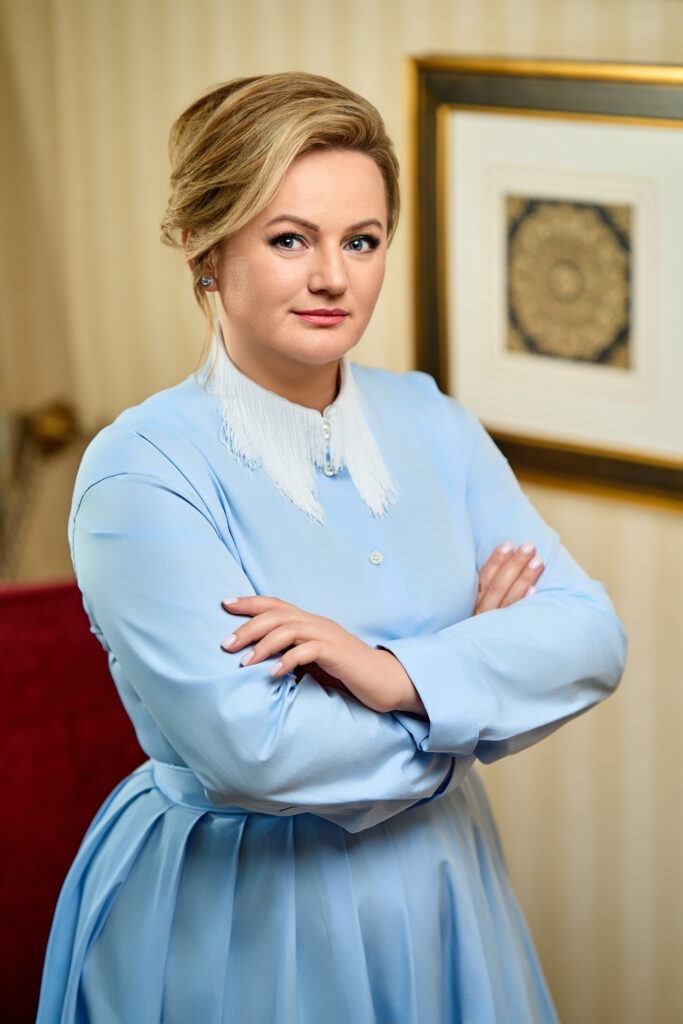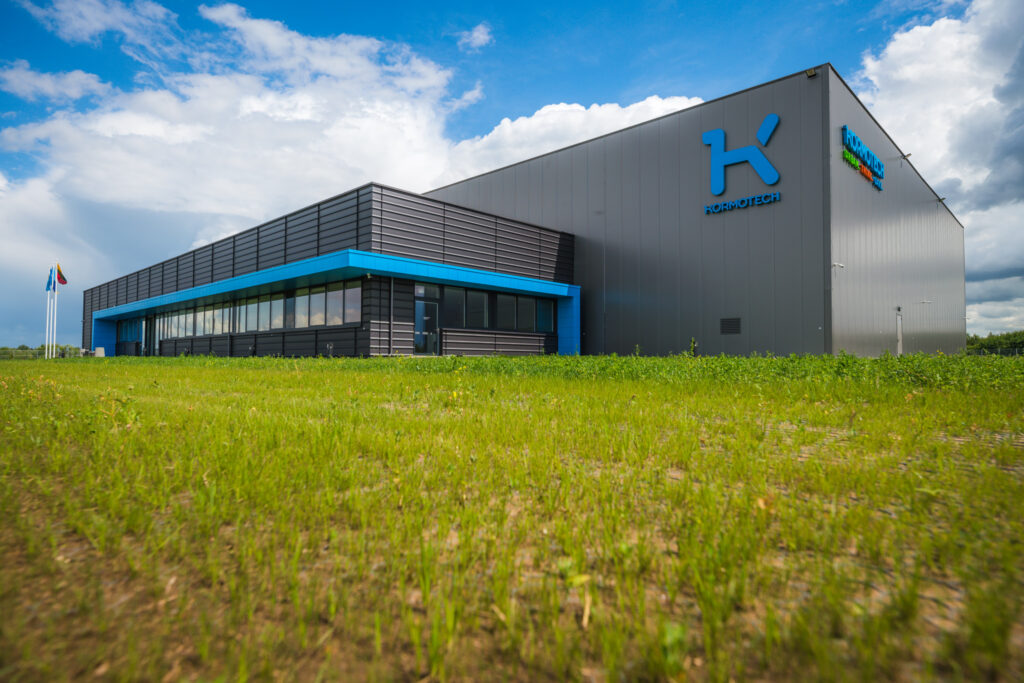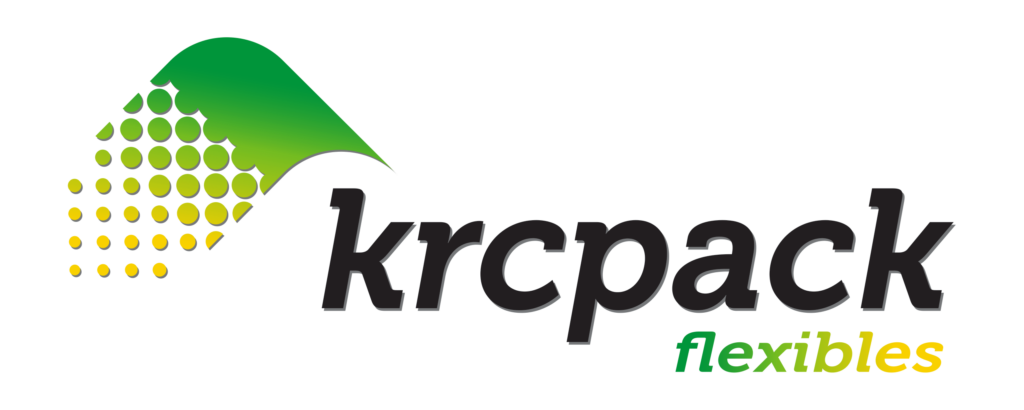Kormotech is renowned in Ukraine as the country’s first producer and biggest manufacturer of pet food, but the past two years have delivered unprecedented challenges. The war could have been a test of resilience and defence, but Chief of Supply Chain, Ulyana Fitsa explains how confidence in Ukraine’s victory has been translated into a proactive expansion plan, and a defiant mission to forge an exciting future for Kormotech, its people, and its partners.
Hi Ulyana. As one of the original empoyees of Kormotech, you’ve had a front row seat for its rise to prominence. How could you possibly sum up the extent of growth over the past two decades, as a way to introduce the company?
As you say, I’ve been with the company for 20 years since its inception in 2003. Kormotech is a second-generation family business belonging to the Vovk family, and they initially hired me as a translator. It’s fair to say that my role has evolved almost as much as the organisation since then.
Kormotech was the first company in Ukraine at the time to produce pet food to international standards. However, as a newcomer to the industry, the Vovk family invited international consultants into the project to ensure we got off to the best possible start. Hence the need for a translator.
I assisted the group of US consultants who supervised the construction of our first pet food plant in the Lviv region. This evolved into Kormotech becoming the first pet food manufacturer in Ukraine that met all international standards relating to the pet food itself, its ingredients, and the equipment used in production.
Fast-forward 10 years and I was promoted to the role of Chief Supply Chain in March 2013, as a result of my strong insider knowledge of (and experience with) the entire production process and supply needs.
And if we fast forward another 10 years?
Now, we produce more than 650 SKUs from more than 2,000 ingredients, and I am responsible for the whole process of on-time delivery and quality control. I essentially put best practice in place to ensure we can produce premium and super premium pet food products.
At present we occupy a third of Ukraine’s market, and are 55th in the global pet food industry’s TOP100. We will always be Ukraine’s founders of the pet food industry, though.
View this content in digital brochure version below:
Before we dive into some of the more challenging aspects of your role and the supply chain landscape, what would you, more generally, attribute the company’s success to over the past 20 years?
We have a belief that pet food standards are just as important and demanding as baby food. It’s a value we always encourage in every new starter or new business partner, and if they don’t share this philosophy or are not on the same page, then we won’t be able to find common ground.
For my raw material partners, for example, if they don’t understand why our quality standards are so high, I always tell them that there is a psychological similarity between how we feel about pets and how we feel about our children. We now have the same attitude to our dogs and cats as we do to our children – we care for them, and they make us happy.
They deserve the best.
When striving for the best from a supply chain management perspective, what challenges do you typically face in your role?
Pet food supply chains are complex operations and dozens of critical decisions are made at both strategic and tactical levels by company executives, CSCOs and ordinary workers to keep the system running smoothly and on time. Any disruption, security risk, labour shortages, unexpected governmental regulations or export limits can have a major impact on the company’s resilience levels.
I guess, sadly, that Ukraine serves as a current example of how these challenges can come together at the same time to create extremely testing conditions?
Sadly, yes. Since February 2022, when the invasion of Ukraine began, all of the aforementioned factors have become a reality for Kormotech. But these risks are not confined to Ukraine’s borders. It has obvious implications for the European and global economy and its supply routes, which have suffered from blocked Black Sea transport corridors or have had to adapt to expanding sanctions and other new risks that may emerge as black swans.
And then there’s the consumers to consider…
Absolutely. Customers expect greater speed of delivery and more expansive product choice, despite our constraints and restrictions. As a global pet food market, we need to respond to various growth forecasts being made, all while supply chains in many parts of the world are feeling more vulnerable than before and facing more unprecedented risks than before.
It’s a strategic dilemma that requires a new approach and a new dynamic to decision making, to ensure ongoing supply chain efficiency and wider business resilience.
How has this “new dynamic” transpired for Kormotech?
When Kormotech faced the real risks of disruption to logistics routes and supply chains, a series of decisions were taken to balance the situation and renew production and delivery, and this experience could be relevant to any pet food producer facing a crisis or uncertainty in logistics and supply.
To manage the super-crisis of wartime, we switched to a mode of flexibility and adaptability in production, logistics, supply and management. Some days there was no hierarchy, and people previously separated by four levels of subordination worked side by side. Specifically, the logistics and supply chain team was rebuilt as a horizontal structure reporting directly to the CEO.
We also developed more than one backup plan. There were many ‘plan Bs’ designed to respond to different risks and rapid changes. For instance, Ukrainian companies faced a short-term ban on imports in 2022. This hit many manufacturers that rely on foreign suppliers, including us, but we quickly looked to solve the problem.
A key factor for us was the close partnership we share with local suppliers in Ukraine, who we often treated as business incubators. We relied on their raw materials and packaging, helped them relocate, or extended our payments during the crisis when export-import restrictions were in place. In a crisis situation, shared values and quality standards became a guarantee of continued supply despite the highest risks.
The practical part of the strategic contingency plan was to relocate or expand our warehouses to a safer region or a more open market. That’s why we accelerated the opening of a warehouse in Poland in 2022 that was later transformed into an operational hub and the point of further expansion into Eastern European markets.
Backed by these solutions, we have created a secure ecosystem that is guaranteed to work in the event of force majeure.
Content Sponsor and Key Supply Chain Partner: krcpack
That is a quite incredible level of adaptability in such a short timeframe and under the most intense pressure. It is one thing to show resilience, but to actually put in place growth and expansion plans is quite something.
Yes, we continue to grow. A week after the war started, we decided to run the business on the basis of a scenario where Ukraine is victorious. We therefore looked to continue our expansion strategy and go to international markets as priority goals.
One of the main conclusions of 2022-2023 was to increase the speed of entering foreign markets… to withdraw the old timeline and make a new one. The war forced us to make a bolder move outside our own country. We removed our fear of limits, and our fear of distances. Today we export to more than 42 countries in Europe, Asia, America and Africa.
Some markets and regions are completely new for Ukrainian companies, but we invest in this expansion, experiment, go through various experiences, and then we succeed.
How far have these new distances taken you so far?
In 2023, Kormotech signed its first contracts with distributors in South Korea and Malaysia. These are new markets for the company. Expanding its marketing search in Asia, Kormotech presented its brands for the first time at the International Industrial Fair in Kobe, Japan.
Closer to home, Kormotech’s Lithuania’s expansion has also been significant, involving an investment of €60 million euros, granting us the status of a major investor, which guarantees access to investment incentives and tax exemptions. It is important for us, not only in terms of business development, but also in terms of reputation, to be on the same list with as many as 30 other major investors in the Lithuanian economy.
We now export more than 30 percent of our production and we are increasing this share. Our strategic goal is to be among the top 30 companies in the world by 2028.
When a company is growing as fast as you are, and is as ambitions as you are, it’s easy to lose what made you so special to begin with. How important has it been to retain the family-feel culture even as your horizons and aspirations grow?
The culture doesn’t change, and it’s partly my role to continue the education that I mentioned before, with new employees and partners.
In 2003 and the years that followed, people had little knowledge of the benefits of pet food and the idea that quality rations improved their pets’ wellbeing. This was the culture we nurtured and later we turned it into a mission to change attitudes towards pets in the entire region of Central and Eastern Europe. We inspire people to enjoy their role as pet parents and provide them with high quality pet food that supports the health and wellbeing of their pets.

For my part, I had to educate suppliers in Ukraine, who often had misconceptions about pet food standards. This is one of the areas where we have been successful. Local manufacturers, medium-sized companies and even large agribusinesses have received a lot of help in terms of quality standards, and have learnt to meet our requirements and remain long-term partners.
These relationships and these stories of cooperation laid the foundation for future sustainability in times of great crisis. This business education was a very good investment and both sides continue to benefit.
After such a significant couple of years, is it possible to make solid predictions for the years to come? What are your personal hopes for Kormotech’s supply chain function in the immediate future?
Indeed, my biggest challenge is always the uncertainty that exists in the supply chain, which means we have to be as flexible as possible. What’s unique about my job and my team’s job is that the supply chain is always a team effort. You can’t do it alone because there’s too much responsibility and too many points to control.
My team of 160 is always thinking about how to make the best of every situation. They’re not afraid to take responsibility, or maybe even a few risks. Most people in my team have 10 years or more experience, and they help me make the right decisions, because sometimes they see more than I do.
It is a combination of teamwork, risk management and leadership. Everyone in my team, including me, is ready for change and challenge. We believe in our strategy and will continue to focus on doing the best we can to make it a successful strategy.


